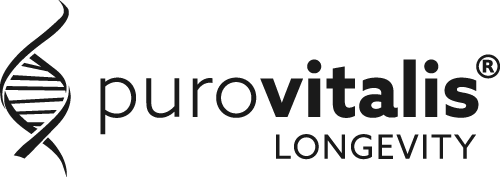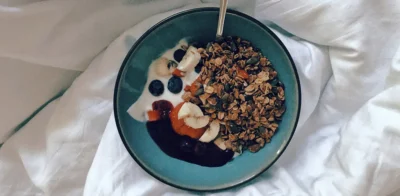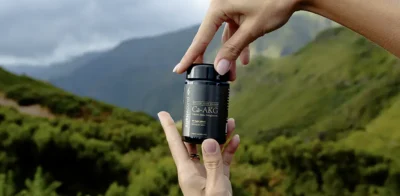
table of contents
Understanding your biological age can be a game-changer for assessing your overall health and longevity. Unlike chronological age, which is the number of years since birth, biological age reflects your body’s physiological and functional condition. This article explores the science of biological age, its relevance, and practical ways to calculate it using innovative tools and apps.
What is your biological age?
Biological age reflects how well your body is aging compared to the average person of your chronological age. While your chronological age increases at a fixed rate, your biological age can move faster or slower, depending on factors such as genetics, lifestyle, and environmental influences. This difference reveals your individual rate of aging – meaning how quickly or slowly your body is aging compared to your actual age. In some cases, your aging rate may be faster than your chronological age, and in others, it may be slower.
For instance
A 40-year-old person with excellent health markers might have a biological age of 30, signifying slower aging. Conversely, someone with poor health habits could have a biological age of 50, indicating accelerated aging.
Another example is Bryan Johnson, who has dedicated his life to longevity and follows an extremely structured approach to health. His strict protocol includes intermittent fasting, optimized sleep, intense physical training, and a comprehensive supplement regimen. As a result, he has reversed his biological age by 5.1 years, and his heart now functions like that of an average 37-year-old. His measured aging speed is significantly lower than 1.0 – meaning his body is aging considerably slower than normal. Read the full blog here: Bryan Johnson Blueprint protocol
Chronological age vs. biological age
Chronological age
Simply put, this is the age in years from your birth date. It’s a straightforward measurement of time.
Biological age
In contrast, this is a reflection of your body’s health and vitality. It encompasses various markers, including cellular health, organ function, and metabolic performance.
What is metabolic age?
Metabolic age evaluates how efficiently your body operates compared to others in your age group. A lower metabolic age often indicates better health and fitness. Improving metabolic health through regular exercise and a balanced diet can reduce your overall biological age.
The difference between biological age and metabolic age
Biological age shows how well your body is aging overall, based on markers like DNA, inflammation, and organ function.
Metabolic age reflects how your metabolism compares to the average for your age group, based on factors like muscle mass and fat percentage.
Bio age and its implications
Biological age – or bio age – is more than just a number. It reflects how well your body is functioning compared to your actual age. It offers insights into:
Cellular health
The state of your DNA and cell function.
Lifestyle impact
Effects of diet, exercise, and habits.
Disease risk
A higher biological age might correlate with greater susceptibility to chronic illnesses.
Speed of aging
How fast or slow you body ages compared to your chronological age.
How do you calculate your biological age
Several methods can estimate your biological age. Some are based on advanced scientific models, while others use accessible tools like apps.
Using a biological age test
One of the most accurate methods is taking a professional biological age test. These tests measure biomarkers like DNA methylation, inflammation levels, and metabolic rate. For example, the Muhdo Biological Age Test offers a comprehensive analysis to determine your biological age.
Online questionnaires
Some websites offer simple questionnaires to estimate your biological age. These tools ask about your habits, diet, activity level, and other factors. While these assessments are quick and easy to use, they lack the precision of biomarker-based tests and should be viewed as general estimates rather than scientific evaluations.
If you’re curious about your biological age, there are several free biological age calculators available online. These tools use basic inputs like your chronological age, activity level, diet, sleep, and lifestyle habits to estimate how old your body is functioning biologically.
Here are some popular biological age calculator tools:
You can find more by searching “free biological age calculator” – most only require a quick questionnaire and provide instant feedback.
3. Purovitalis Aura App
The Purovitalis AURA app gives you a quick, science-backed health check using just your smartphone. With a short face video, voice recording, and selfie, the app analyzes over 20 biomarkers linked to your heart, brain, lungs, metabolism, and skin.
It uses clinically validated AI to detect early signs of issues like high stress, poor recovery, or cardiovascular strain – all in under 2 minutes. Your data stays private: it’s encrypted, face videos aren’t stored, and everything is deleted if you cancel.
What can AURA detect?
| Area | Insight |
|---|---|
| Heart & lungs | Heart rate, blood pressure, oxygen, stress |
| Brain & mood | Cognitive sharpness, depression signs |
| Metabolism | Inflammation, fatigue indicators |
| Skin health | Hydration, tone, signs of aging |
4. Metabolic age calculation
For a deeper dive into your biological metrics, you can combine the Aura app with wearable devices like the Apple Watch or other fitness monitors. These devices track data like heart rate variability, VO2 max, and calorie expenditure, which are key components in calculating your metabolic age. This integrated approach gives you a more dynamic and real-time understanding of your body’s functional age.
By combining apps, wearables, and tests, you can gain a nuanced understanding of your biological age. Whether you’re exploring quick questionnaires or leveraging advanced tools, the insights you gather can guide better health decisions.
Why biological age matters
Your biological age isn’t just a number; it’s a reflection of your health and longevity potential. Tracking it helps you:
- Identify areas for improvement.
- Adopt healthier habits.
- Monitor the effectiveness of lifestyle changes.
For instance, incorporating longevity hacks like intermittent fasting and regular exercise can significantly reduce your biological age.
Factors affecting your biological age
Biological age is influenced by several key factors, including:
- Lifestyle choices: Smoking, drinking, and poor diet accelerate aging.
- Stress levels: Chronic stress increases cortisol, leading to faster aging.
- Genetics: Inherited traits also play a role.
- Environmental exposure: Pollution and toxins can damage cells and DNA.
Related to environmental exposure: Microplastics health impact and prevention strategies and New study: Microplastics impact on male reproductive health
How to improve biological age?
Reducing your biological age requires a comprehensive approach. Here are some practical strategies:
| Area | Why it matters |
|---|---|
| Prioritize nutrition | Nutrient-dense foods with antioxidants and healthy fats reduce inflammation and oxidative stress. Avoid processed foods and excess sugar. |
| Exercise regularly | Boosts heart health, muscle strength, and metabolism. Combine aerobic and strength training. |
| Optimize sleep | 7–9 hours of quality sleep helps the body repair and slows aging. Poor sleep speeds up decline. |
| Manage stress | Techniques like meditation and deep breathing reduce cortisol and support hormonal balance. |
| Take supplements | Supplements like NMN, spermidine, magnesium, D3 and omega-3 can support energy, cell repair, and longevity goals – especially if diet alone isn’t enough. |
For more insights, read our article on The hallmarks of aging
How to calculate your biological age at home
If you want to estimate your biological age without a test, consider these methods:
Track fitness levels: Use wearable fitness devices to measure VO2 max, a key indicator of cardiovascular health.
Assess lifestyle habits: Review factors like diet, sleep, and exercise.
Use an App: Tools like the Purovitalis Aura app provide valuable insights into your biological age.
A note of caution
While tools like apps and biological age tests can offer helpful insights into your health, they should never replace a consultation with a medical professional. If you experience symptoms or have concerns about your health, always seek advice from your doctor. Biological age is a supportive tool—not a diagnosis.
FAQs
What is the difference between chronological age and biological age?
Chronological age is the number of years since birth, while biological age reflects your body’s health and functional capacity.
How do lifestyle choices affect biological age?
Unhealthy habits like poor diet, lack of exercise, and smoking can accelerate aging, increasing your biological age.
Can I reduce my biological age?
Yes, adopting healthier habits like regular exercise, balanced nutrition, and stress management can lower your biological age.
What is metabolic age, and how is it calculated?
Metabolic age compares your body’s energy efficiency to others in your age group. It is calculated using metrics like basal metabolic rate (BMR).
Are biological age tests accurate?
While no test is 100% accurate, tools like the Muhdo Biological Age Test provide a reliable estimate by analyzing biomarkers.
How can the Purovitalis Aura app help with biological age?
The app evaluates lifestyle factors and provides a health score based on scientific models, helping you understand and improve your biological age.
Taking charge of your aging process
Biological age offers a powerful snapshot of your overall health and how your body is truly aging—not just by the calendar, but on a cellular level. Whether you’re curious about your aging speed, aiming to slow it down, or simply want to feel more in control of your long-term health, tracking your biological age is a smart place to start.
With modern tools like the Purovitalis AURA app, wearables, and reliable at-home methods, it’s easier than ever to understand and improve your biological age. Small changes in sleep, nutrition, movement, and stress management can make a measurable difference.
Your age may be just a number—but how you age is something you can influence.
For more ways to optimize your health and longevity, explore our detailed guide on Top Longevity Hacks.
References
- Horvath, S. (2013). DNA methylation age of human tissues and cell types. Genome Biology.
- López-Otín, C., et al. (2013). The hallmarks of aging. Cell.
- Mitchell, R., et al. (2018). Comparing subjective and objective measures of biological age. Aging Research Reviews.
- Levine, M. E., et al. (2018). An epigenetic biomarker of aging for lifespan and healthspan. Aging (Albany NY).
- Hannum, G., et al. (2013). Genome-wide methylation profiles reveal quantitative views of human aging rates. Molecular Cell.
- Finkel, T., et al. (2007). Oxidative stress and the biology of aging. Nature.

Track 50+ health metrics with AI-powered accuracy. Start your free trial today and take control of your wellness journey!

longevity tips best exercises nutrition diets healthy lifestyle
The art of living well a life that’s not measured by years alone, but by experiences, health, and joy!












